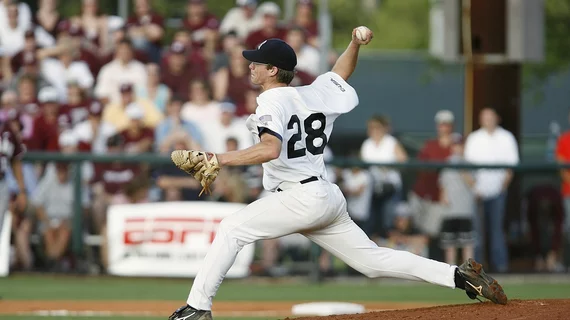MLB ‘FEVER’ pitch: New MRI view changing the game for elbow injuries
Major League Baseball pitchers put a tremendous amount of stress on their elbows, causing frequent injuries. But MLB physicians and imaging experts have found a new way to better examine and potentially treat such damage.
The flexed elbow valgus external rotation or FEVER view improves visualization of the ulnar collateral ligament, commonly injured in throwing athletes, on MRI exams, experts explained Thursday in AJR. It proved superior for assessing UCL damage compared to standard MRI sequences.
"The increased joint space width confirms elbow valgus stress with FEVER view," corresponding author Thomas Knoblauch of the University of Nevada Las Vegas, said in the study. "Diagnostic confidence increased, and additional UCLs were identified as abnormal."
Standard positioning for elbow MRI isn’t ideal for scanning UCL traumas, the authors explained. So Arizona Diamondbacks head team physician Gary Waslewski and colleagues piloted a study to determine if a different view could do better.
They incorporated conventional elbow MRI with a coronal fat-saturated proton density-weighted sequence in the FEVER view. Forty-four MLB pitchers underwent an elbow scan using both standard and the novel viewing technique. Two radiologists independently assessed each approach.
With FEVER, ulnotrochlear (UT) joint space width increased (mean 1.80 mm), as did rads’ diagnostic confidence for 3 of 5 UCL-related findings, the authors reported.
Overall, the added information provides physicians further insight into elbow injuries and should be incorporated into practice.
“The findings support the FEVER view as a practical addition to standard elbow MRI protocols for achieving elbow valgus stress in throwing athletes," the authors concluded.
Read the entire study published in the American Journal of Roentgenology here.

